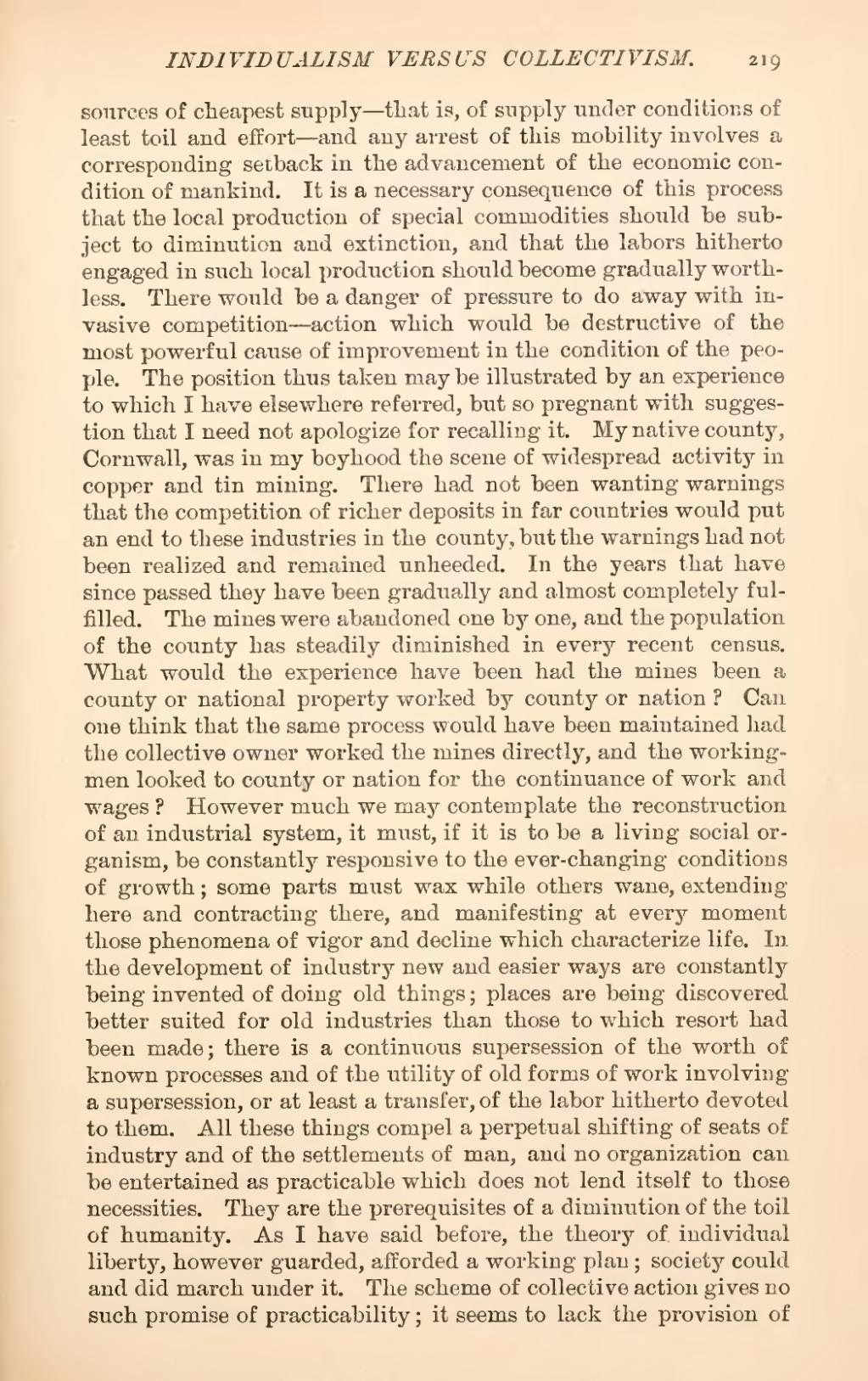sources of cheapest supply—that is, of supply under conditions of least toil and effort—and any arrest of this mobility involves a corresponding setback in the advancement of the economic condition of mankind. It is a necessary consequence of this process that the local production of special commodities should be subject to diminution and extinction, and that the labors hitherto engaged in such local production should become gradually worthless. There would be a danger of pressure to do away with invasive competition—action which would be destructive of the most powerful cause of improvement in the condition of the people. The position thus taken may be illustrated by an experience to which I have elsewhere referred, but so pregnant with suggestion that I need not apologize for recalling it. My native county, Cornwall, was in my boyhood the scene of widespread activity in copper and tin mining. There had not been wanting warnings that the competition of richer deposits in far countries would put an end to these industries in the county, but the warnings had not been realized and remained unheeded. In the years that have since passed they have been gradually and almost completely fulfilled. The mines were abandoned one by one, and the population of the county has steadily diminished in every recent census. What would the experience have been had the mines been a county or national property worked by county or nation? Can one think that the same process would have been maintained had the collective owner worked the mines directly, and the workingmen looked to county or nation for the continuance of work and wages? However much we may contemplate the reconstruction of an industrial system, it must, if it is to be a living social organism, be constantly responsive to the ever-changing conditions of growth; some parts must wax while others wane, extending here and contracting there, and manifesting at every moment those phenomena of vigor and decline which characterize life. In the development of industry new and easier ways are constantly being invented of doing old things; places are being discovered better suited for old industries than those to which resort had been made; there is a continuous supersession of the worth of known processes and of the utility of old forms of work involving a supersession, or at least a transfer, of the labor hitherto devoted to them. All these things compel a perpetual shifting of seats of industry and of the settlements of man, and no organization can be entertained as practicable which does not lend itself to those necessities. They are the prerequisites of a diminution of the toil of humanity. As I have said before, the theory of. individual liberty, however guarded, afforded a working plan; society could and did march under it. The scheme of collective action gives no such promise of practicability; it seems to lack the provision of
